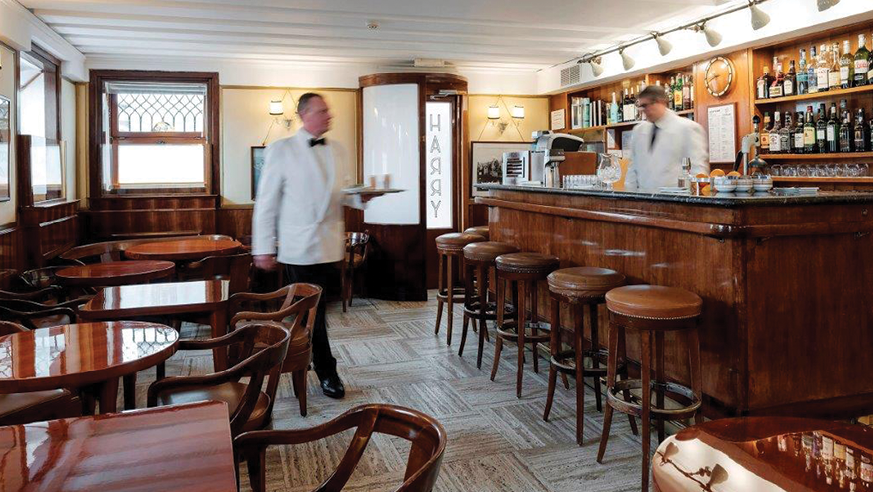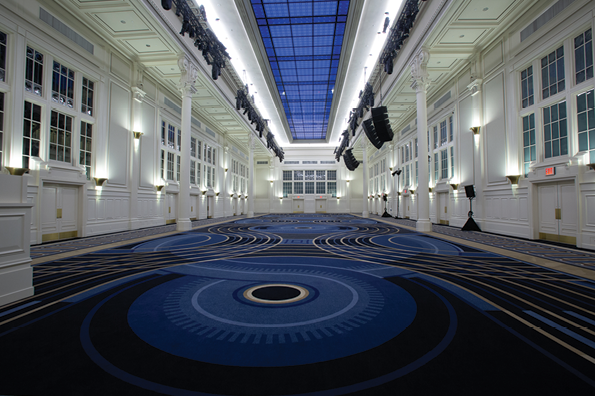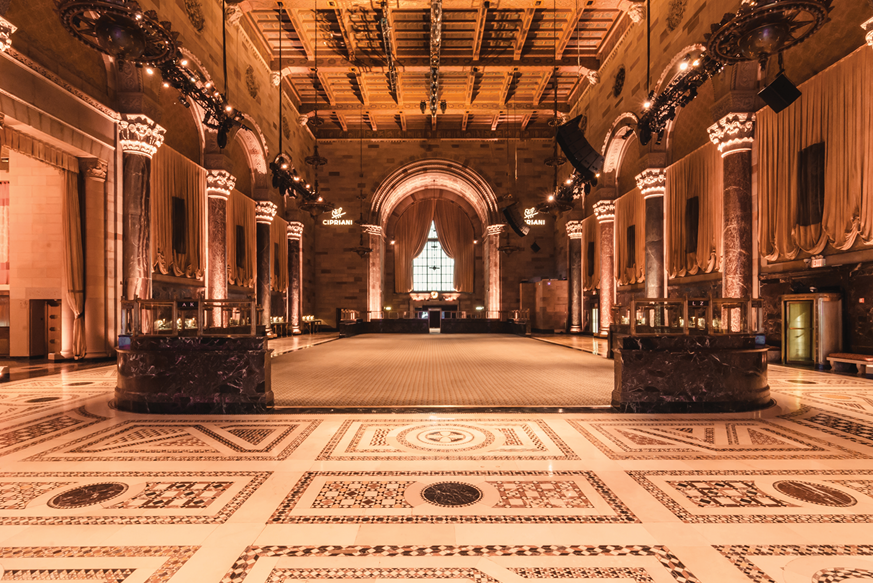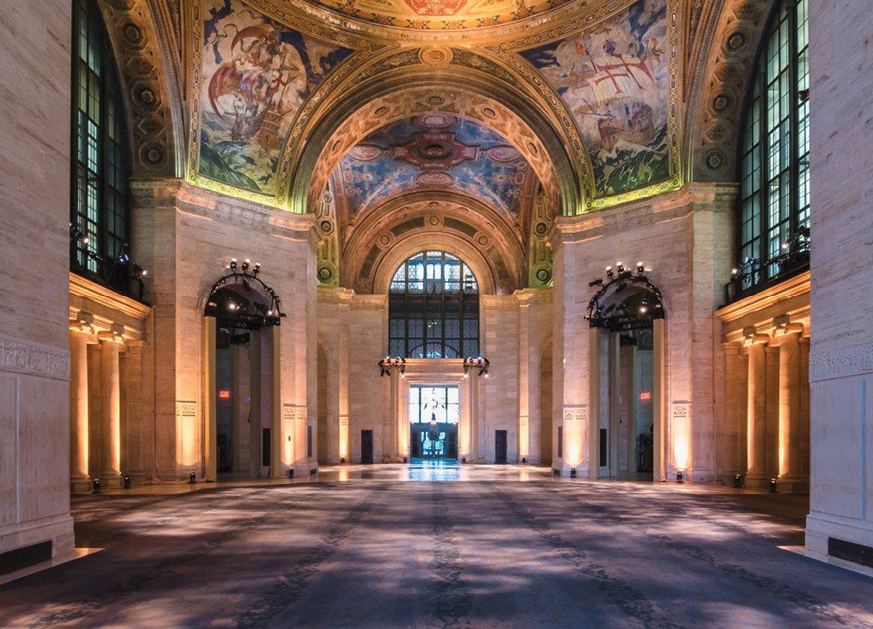- Home
- Media Kit
- Current Issue
- Past Issues
- Ad Specs-Submission
- Ad Print Settings
- Reprints (PDF)
- Photo Specifications (PDF)
- Contact Us

![]()
ONLINE

Simple Luxury
Editors’ Note
Maggio Cipriani, fourth generation of the Cipriani family and President of Cipriani USA, was born in Bologna, Italy. He spent his childhood between Venice, Ravenna and Milan, and at the age of 10, he moved to New York where he completed his bilingual education first in a European institution and later in the American school system. Since his early teenage years, like his brother Ignazio, he spent time working at Harry’s Bar in Venice, then Hong Kong and London, whenever he had some spare time from school. He trained in the kitchen, on the floors of the restaurants, in the pasta factory and worked side by side with his grandfather and father in the different Cipriani locations around the world. He joined his father, Giuseppe, in handling day-to-day operations of the company, focusing on the United States business and developing at the same time with his brother, Mr. C Hotels, their own independent hospitality concept. The first project unfolded in Los Angeles in 2011, followed by Mr. C Seaport and Mr. C Coconut Grove. He opened Cipriani Downtown Miami in 2013, Cipriani Masaryk in Mexico City in 2015, Cipriani Dubai in 2016, Cipriani Riyadh in 2017 and Cipriani Las Vegas in 2018. Among his more recent endeavors is the development of the lounge brand Socialista, from creating and finalizing its unique design to curating a successful guest strategy in New York, London, Dubai and Miami. He is also focused on the development of the iconic Battery Maritime building in New York City that opened in October 2019 as Cipriani South Street, the latest addition to the Cipriani landmark collection of event spaces. A second phase, to be completed in 2020, will house Casa Cipriani, a luxury hotel with 47 rooms and suites and the family’s first social private membership club. He still finds time, whenever work allows him, to pursue two of his great passions, boxing and soccer.
Company Brief
In 1931, a long-sought dream became reality – Giuseppe Cipriani opened the doors to Harry’s Bar. In a discreet stone building perched along a canal just off Piazza San Marco in Venice, he created a timeless and impeccably appointed establishment. His concept was to serve others as you would want to be served yourself. Four generations of the Cipriani family have grown a single restaurant into a world-renowned hospitality brand (cipriani.com) recognized for its distinguished venues and service all over the world.

Harry’s Bar in Venice
Cipriani is consistently a leader in the hospitality industry and has a long history and heritage. What have been the keys to Cipriani’s success and has made Cipriani stay relevant over the years?
To guard the core values that have been at the heart of the company for four generations and apply to all aspects of the hospitality business. They are timeless elements that were appreciated yesterday, are appreciated today, and will be appreciated tomorrow. An understated luxury made of many different details, the concept of freedom and no imposition, the love for real service and the attention to quality of ingredients are fundamentals in our Cipriani style and philosophy. We have also been very fortunate to have wonderful, faithful guests around the world who keep coming back and see Cipriani as their second home. They appreciate our traditional Italian cuisine that in its simplicity and familiar tastes can be enjoyed day after day.

Interior of Cipriani South Street
Will you provide an overview of Cipriani’s business and where you see the greatest opportunities for growth?
It all started in Venice in 1931 when my great grandfather opened the doors of Harry’s Bar which is still successful to this day. His name was Giuseppe Cipriani. He was a bartender at the time, and out of kindness and incredible intuition, he had loaned a tidy sum to a customer named Harry Pickering who had been cut off from his family fortune. Repaid for his generosity, he opened what was declared in 2001 by the Italian Ministry of Cultural Affairs a national cultural landmark.
It was the birthplace of Carpaccio and the Bellini, the original cocktail of Prosecco and white peach purée, which was named after the 15th-century Venetian painter, Giovanni Bellini.
In the almost 90 years since and four generations later, Cipriani has developed into an international hospitality brand with over 25 locations that include restaurants, landmarked event spaces, hotels and lounges in over 10 countries around the world along with a full product line of Cipriani foods marketed internationally in retail stores. We are now present in, just to name a few, New York, Miami, Mexico City, Dubai, Abu Dhabi and Monte Carlo, the recently opened Cipriani Las Vegas at Wynn Shops and Riyadh.
I strongly believe that there is still room to expand in key high-growth markets, including cities in Europe like Milan and Madrid with luxury hospitality projects, especially with hotels, restaurants and private clubs.

Cipriani 42nd Street
Will you highlight Cipriani’s current projects?
We recently opened Cipriani South Street at the iconic 1906 Beaux Arts Battery Maritime Building. This is a variety of event spaces that include separate pre-function rooms, a spectacular loggia balcony and the historical Great Hall with the original skylight that accommodates up to 800 seated guests. A second phase in the same building will be completed in late summer 2020 and will house our first Casa Cipriani luxury hotel, with 47 rooms including 20 suites with private balconies overlooking the Brooklyn Bridge and the Statue of Liberty and an exclusive private membership club with over 15,000 square feet devoted to fitness and wellness and 30,000 square feet of dining, entertainment, social areas and terraces.
The architect for the entire project is Thierry Despont, internationally renowned for his historical renovations, including the Statue of Liberty, high-end residential, hotel developments and museum projects. The first quarter of 2020 will also see the opening of Harry’s Table, a 28,000-square-foot expanded culinary project at the Waterline Square in Manhattan on the West Side, that will include specialty counters like a pasta lab, a fish counter, a pizza bar and other casual outlets, a food retail component throughout the space, a full bar inspired by mid-century Italy, and a more formal restaurant facing the waterfront.
On the event side, we have started at our Cipriani 25 Broadway landmarked space, previously known as The Cunard Building, a collaboration with Moment Factory, an entertainment studio known internationally for its installations and immersive storytelling. Through their incredible work, we show how an historic landmark building can be transformed into a bespoke multimedia canvas and customize the architecture for the most innovative events, pushing the boundaries of technology, entertainment and hospitality.
We are also developing in Punta del Este, Uruguay, a Cipriani Ocean Resort, Club Residences and Casino complex, designed by famous architect Rafael Vinoly, converting the emblematic Tudor style San Rafael Hotel and adding 800,000 square feet of beautiful residences.
Are there consistent characteristics that are a part of each Cipriani venue or is it more about what works for each specific market?
Our cuisine sees our traditional dishes from Harry’s Bar in Venice in all locations with a few specialties that are based on the local produce. We keep our style of relaxed elegant decor in every venue that we open, adapting sometimes colors or materials to the feel and vibe of the location.

Cipriani 25 Broadway, formerly known as The Cunard Building
How do you define the Cipriani culture?
Luxury in simplicity, which is a state of being and more substance than form.
Cipriani places a major focus on talent and investing in its workforce. In an industry known for high turnover, what has made Cipriani successful in attracting and retaining talent?
We look for people who aside from their own specific skills show passion for this industry and for our brand and our culture, along with their own personality, to bring added value to our team.
As a fourth-generation family member, did you always know that you wanted to work for the business?
I grew up breathing this business and most of the conversations in my household were around food and service. From a very young age I started to be involved and worked on all different aspects of it in different countries.
What has made the family dynamic at Cipriani work so well and what do you see as the keys to running a successful family business?
I consider myself very lucky to have mentors and great examples within my own family. Their work ethic, love for service and constant enthusiasm have been invaluable inspirations. Of course, we have our own different personalities, but we always express ourselves and listen to each other with a great sense of respect.![]()